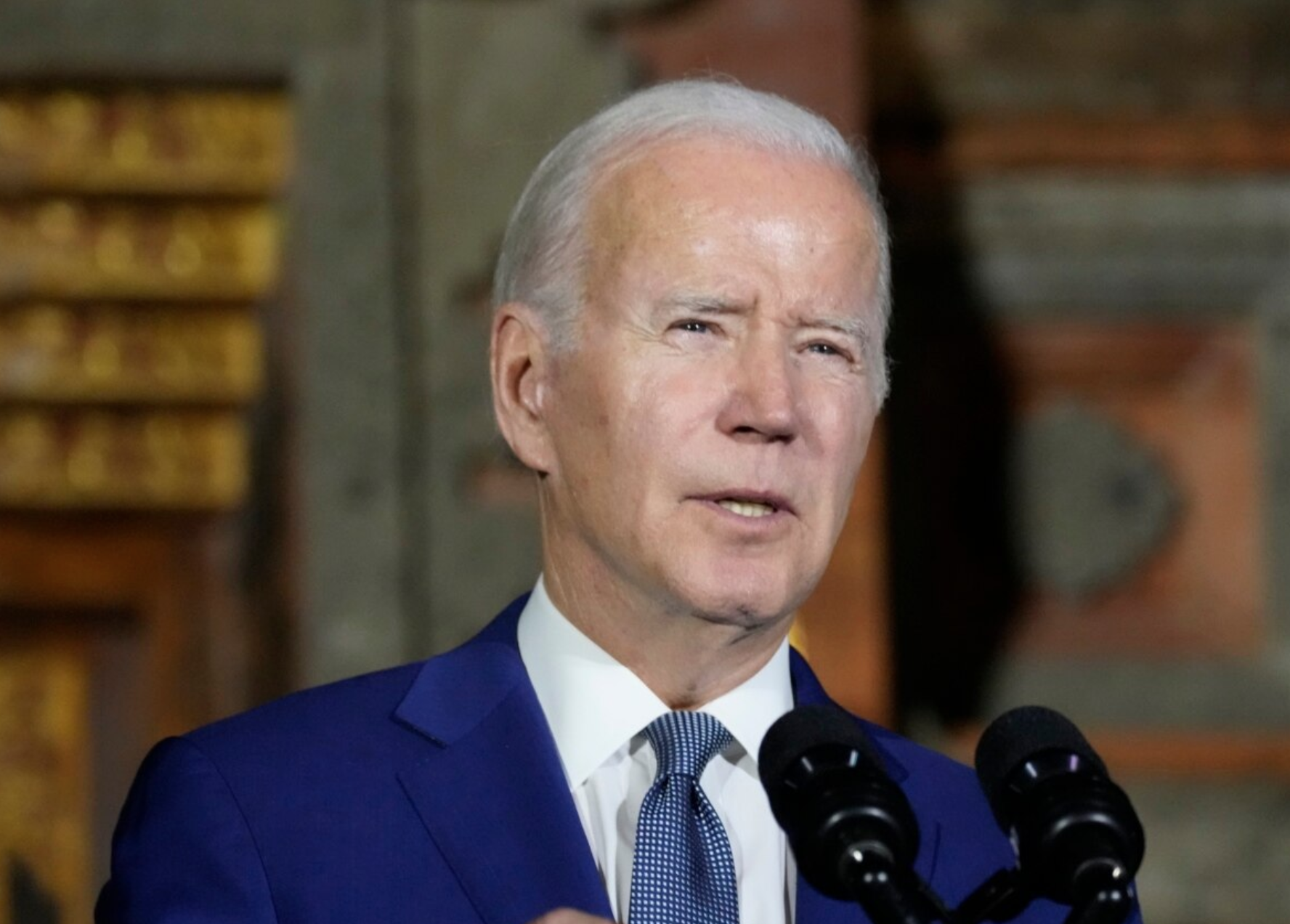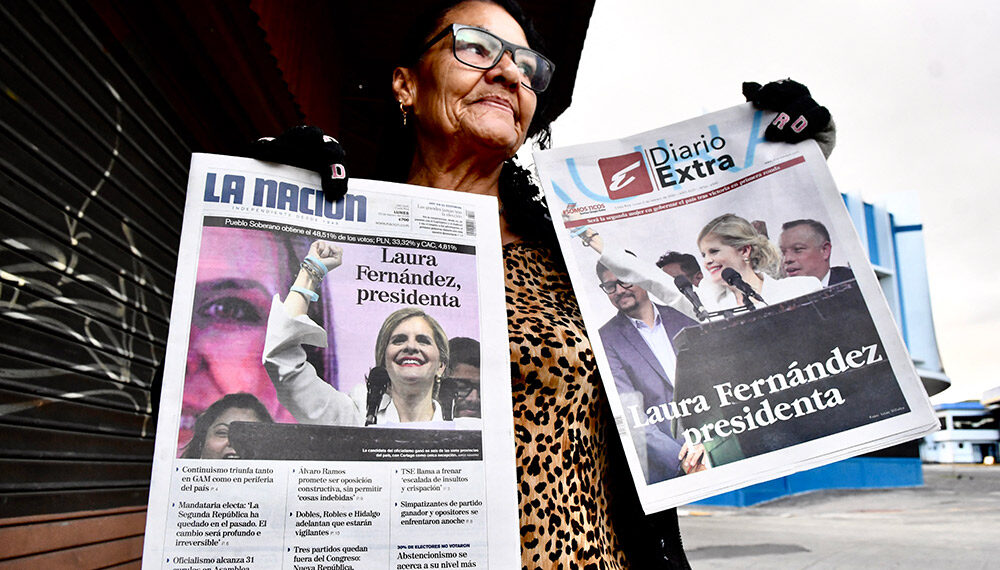Central America
Biden to receive President Chaves of Costa Rica next week

August 25|
The presidents of the United States, Joe Biden, and Costa Rica, Rodrigo Chaves Robles, will meet in Washington on August 29 to discuss bilateral issues such as the economy, regional migration and cybersecurity, among others, the White House announced in a statement.
“The two leaders will discuss how our two countries can build inclusive and sustainable economies, including through the Partnership of the Americas for Economic Prosperity, promote democratic values in the region, promote orderly and safe migration in accordance with the principles of the Los Angeles Declaration on Migration and Protection, as well as address regional security challenges,” the statement said.
For its part, the Costa Rican government, in announcing Chaves’ visit to the United States, thanked “the most recent collaboration of General Laura Richardson, Commander of the United States Southern Command”.
Richardson visited San José this Monday and met with the Costa Rican president to establish a three-year security collaboration agreement that provides the Central American nation with an amount of 9.8 million dollars, which “will strengthen Costa Rica’s cyber defense capacity”, said the Southern Command in a statement.
Biden and Chaves will also discuss what the United States sees as China’s growing influence in the region, Administration officials in Washington told Reuters. The United States and China have been on a path of tense relations for several years on issues such as security, trade tariffs, Taiwan, the origins of the COVID-19 pandemic, technology, human rights and espionage.
Costa Rica has for years been one of the transit countries for thousands of migrants moving northward in the region seeking to enter the United States.
Months ago, in coordination with the office of the United Nations High Commissioner for Refugees (UNHCR), one of the Secure Mobility Offices was established in Costa Rica, which seeks to accelerate the processing of refugees to the United States.
In this Central American country, where the process of registration of refugee applications began through invitations, UNHCR marked the arrival of 4,500 people, of which more than 1,300 migrants were referred to the US refugee program, reported last week Marta Youth, Deputy Assistant Secretary of the Bureau of Population, Refugees and Migration of the Department of State.
Focusing on the migration issue, the State Department announced on Wednesday the award of $16 million in humanitarian assistance for the initiative called the Western Hemisphere Regional Migration Program (WHP).
Focusing on the migration issue, the State Department announced on Wednesday the award of $16 million in humanitarian assistance for the initiative called the Western Hemisphere Regional Migration Program (WHP).
The program is coordinated with the United Nations International Organization for Migration (IOM).
The WHP was established in 2011 and “provides critical support to partner countries in the region to address unprecedented levels of forced displacement and irregular migration,” the U.S. Foreign Ministry said in a statement.
In addition, this initiative is focused on addressing the actions of human smugglers.
Central America
Laura Fernández Says She Will ‘Never’ Allow Authoritarianism in Costa Rica

Costa Rica’s president-elect, right-wing leader Laura Fernández, said she will “never” allow authoritarianism under her government, in her first speech after winning Sunday’s presidential election.
Fernández, the political heir of outgoing President Rodrigo Chaves, has been accused by her opponents of seeking to steer the country toward authoritarian rule through her hardline proposals against drug trafficking and plans to reform state institutions.
“I, as the new president of the Republic, will never allow authoritarianism or arbitrariness—things that no one wants in Costa Rica,” Fernández said to cheers from her supporters gathered at a hotel in the capital.
The 39-year-old political scientist criticized her rivals for centering their campaign on what she described as a narrative of “authoritarianism and dictatorship.”
“They tried to scare voters, but the electorate did not fall into the trap,” she said.
Without offering details, Fernández acknowledged that her administration will seek to change the country’s “political rules of the game,” in what she described as a necessary step for Costa Rica, one of Latin America’s most stable democracies.
Central America
Costa Rica Goes to the Polls as Voters Choose Continuity or Change

Costa Ricans head to the polls today to elect the president of the republic and 57 members of the Legislative Assembly for the 2026–2030 term. Voters must choose between continuing the political project of outgoing President Rodrigo Chaves by supporting the ruling right-wing candidate Laura Fernández, or opting for a change in direction proposed by the opposition.
Fernández, representing the Pueblo Soberano Party (PPS), leads opinion polls with close to 40% of voting intention, bolstered by the outgoing president’s approval rating, which exceeds 50%. Chaves is barred from seeking immediate re-election under Costa Rican law.
Trailing far behind is Álvaro Ramos of the National Liberation Party (PLN), with less than 10% support. He is followed by Claudia Dobles of the Citizen Agenda Coalition (CAC), Fabricio Alvarado of New Republic (NR), and Ariel Robles of the Broad Front (FA), each polling between 3% and 5%. Undecided voters, who account for more than 30% of the electorate, could determine the outcome of the presidential race or force a runoff.
In a statement, Costa Rica’s Supreme Electoral Tribunal (TSE) reaffirmed its commitment to transparent and secure elections. “As has been the case for more than 76 years of democratic life in our country, the Supreme Electoral Tribunal guarantees all Costa Ricans that the national elections to be held this Sunday, February 1, will meet the highest standards of security and absolute transparency, allowing us to continue enjoying electoral processes in peace and freedom,” the institution said.
Authorities reported that 53,251 party observers will take part in the electoral process. Of these, 12,472 belong to the Social Christian Unity Party, 11,524 to Pueblo Soberano, 10,451 to the PLN, and 4,141 to the Citizen Agenda Coalition, among others. In addition, six political parties have sworn in 7,520 members of polling station boardsdeployed nationwide.
Central America
U.S. and Guatemala Sign Trade Deal Granting Zero Tariffs to Most Exports

The United States signed a reciprocal trade agreement with Guatemala on Friday, under which 70.4% of Guatemalan exports will enter the U.S. market tariff-free.
Guatemalan President Bernardo Arévalo highlighted the importance of the agreement, stating that it creates a framework of cooperation, certainty, and new opportunities for producers, workers, and entrepreneurs in the country. His remarks were shared in a video published on his official social media channels.
In 2025, 30.3% of Guatemala’s total exports were destined for the United States, amounting to approximately $4.3 billion. As a result, the agreement is expected to directly benefit key sectors of the Guatemalan economy, including agribusiness, manufacturing, and the textile industry.
“Today we have taken another step toward consolidating a country that, when it moves forward united, generates confidence, attracts investment, and creates real development opportunities for all its people,” Arévalo added.
The agreement with Guatemala follows a similar trade deal signed by the United States with El Salvador on Thursday, which includes the elimination of a 10% tariff on Salvadoran imports.
-

 International5 days ago
International5 days agoU.S. Senate Rejects Budget, Bringing Government Closer to Shutdown Amid DHS Dispute
-

 Central America4 days ago
Central America4 days agoPanama Supreme Court Strikes Down Panama Ports Concession as Unconstitutional
-

 Central America4 days ago
Central America4 days agoU.S. and Guatemala Sign Trade Deal Granting Zero Tariffs to Most Exports
-

 International5 days ago
International5 days agoStorm Kristin Kills Five in Portugal, Leaves Nearly 500,000 Without Power
-

 International5 days ago
International5 days agoMan Arrested After Vehicle Crashes Into Jewish Institution in Brooklyn
-

 International5 days ago
International5 days agoTrump Says Putin Agreed to One-Week Halt in Attacks on Ukraine Amid Extreme Cold
-

 International2 hours ago
International2 hours agoSpain Seeks to Ban Social Media Access for Children Under 16
-

 Central America2 days ago
Central America2 days agoCosta Rica Goes to the Polls as Voters Choose Continuity or Change
-

 International3 hours ago
International3 hours agoMexico to Send Humanitarian Aid to Cuba Amid U.S. Threats Over Oil Shipments
-

 International2 hours ago
International2 hours agoHypothermia Linked to Most Deaths During New York’s Recent Cold Spell
-

 International3 hours ago
International3 hours agoPetro Resumes Extraditions, Sends Top Criminal to U.S. Before White House Talks
-

 International3 hours ago
International3 hours agoMexico Arrests Suspect in Shooting of Sinaloa Lawmakers
-

 International2 hours ago
International2 hours agoEpstein Denies Being ‘the Devil’ in Newly Released Video Interview
-

 Central America3 hours ago
Central America3 hours agoLaura Fernández Says She Will ‘Never’ Allow Authoritarianism in Costa Rica
-

 International2 hours ago
International2 hours agoNFL Investigating Emails Linking Giants Executive to Jeffrey Epstein


























